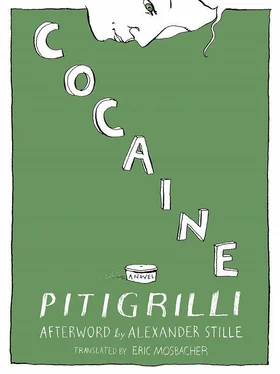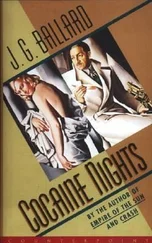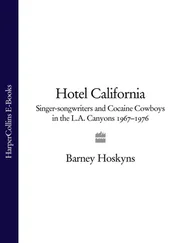Der Zimmerpreis erfährt Erhöhung wenn keine der beiden Hauptmahlzeiten (Lunch oder Diner) im Hotel eingenommen werden.
The sound of pulleys and counterweights came from the lift-well.
Here she is, Tito said to himself.
But the lift stopped at the floor below.
He waited for a moment, hoping that it had stopped to let someone out and that it would resume its ascent and bring his Maud up to him. Instead if gently went down again, moving its own volume of air in the well and making a noise like a tire being deflated.
He walked across the room and opened the window.
In the distance the vague luminosity peculiar to all big cities hovered in the night like phosphorus vapor, as if the sky were reflected in a convex glass.
Tito looked at the constellations of the southern hemisphere: groups of stars, stars like iron filings, stars like flotsam and jetsam, naive combinations of primitive goldsmiths’ work. He felt the blue of the night raining on his heated face. He looked for two constellations of which he had heard when he was a boy: the Southern Cross and Hydra. But he had the impression that in this part of the world the sky was just as randomly untidy as was his own sky.
A big avenue along the seafront flaunted its arc lamps at regular intervals against the dark background of water; they looked like the illuminated portholes of a big ship travelling slowly with all its lights on.
Music, now audible and now not, floated on the slight breeze from some distant villa; it seemed to be not the breeze that was carrying the music but the music that was bringing the breeze to him on that sultry night. Clusters of lights under the big black trees glittered like a paste clasp in rustling tresses. Tito put his hands out of the window as one does in a railway compartment in August in the hope of getting an illusion of coolness from the speed of the train.
He counted the floors beneath him. He was about forty meters up.
A motorboat made its way along the estuary, with guitars and lit cigarettes.
Tito raised his eyes to see whether Vesuvius were not smoking in front of him.
But his Cocaine had not come back.
He shut the window, started the fan that was on the bedside table and slowly began to undress.
“Aren’t you in bed yet?” said Maud, coming in suddenly with her hat in one hand and passing the fingers of her other hand across her brow.
“As you see,” Tito answered coldly, tying the cord of his pajamas round his waist.
“What’s the matter?” Cocaine asked, reading the reasons for his ill humor on her lover’s face.
“Where have you been all this time?”
“Here we are again. Where do you expect me to have been?”
“That’s what I was asking you.”
“I’ve been out for a drive in a car.”
“With whom?”
“Arguedos.”
“The student?”
“Yes.”
“In a car? If he had money for a car, he’d take a bed in a sanatorium.”
“What do you know about it?” the woman objected. Women’s skin reacts quickly to their lovers’ pinpricks.
“And where did that wretch get a car from?” Tito insisted.
“If you didn’t lend him the money, someone else must have done it.”
“No one would trust him with a bootlace.”
“He must have hired it.”
“With whose money?”
“With mine. You think no one trusts him? Well, I do. I lent him a thousand pesos.”
“Why did you do that?”
“Out of friendship.”
“You’ll never get it back.”
“I know.”
“Then it was a present.”
“Call it what you like.”
As she said this she opened the communicating door and disappeared into her own room, tapping the doorpost with her rings.
Tito, cold, calm and painfully hostile, went back to the window to receive comfort from the infinite. The boundless night does not deny consolation to those who ask with the eloquence of pain. And, drinking in a mouthful of blue air (a gramophone was now playing somewhere) he said to himself, laughing bitterly: She used to go to bed with men for the sake of money. Now she pays to go to bed with them. If she grew so atrociously ugly that she couldn’t get a man, she’d wait for the first poor sex-starved devil coming out of jail who made a beeline for her for want of anything better. But she’ll never be faithful to me.
The gramophone had stopped.
A nightingale kept a sleepy villa garden awake.
In another villa an invisible violin sounded as if it was at death’s door.
The violin and the nightingale could not see each other, but took turns in telling each other about their sadness.
They seemed to be the same nightingale and the same violin that were to be heard at night in Paris at Kalantan’s villa which was as white as an ossuary. How uniform the world was. But for the fact of the intervening ocean, the road between that Paris villa and this South American hotel would be scattered with nightingales and violins just like these.
The gramophone started up again. They had put on a new record. It started up again to cover those other sounds with its froglike croaking.
The gramophone is the duty frog in the great swamp that is every big city.
Tito did not sleep that night. He heard bells ringing: once for the waiter, twice for the waitress, three times for the porter.
He heard the sound of footsteps on the ribbon-shaped carpets in the corridor.
He heard the moaning of a siren of an arriving ship (how sad) or a departing one (how melancholy).
He switched on the light. He was in a hotel bedroom. There was the number of the room and a notice giving the prices. The management could not accept responsibility for valuables not handed in at the office.
He switched off the light.
He had the illusion of going to sleep, but did not sleep. He seemed to be leaning against a high balustrade that suddenly disappeared and let him fall into the void. But halfway down he awoke with extended arms.
A beetle in the Louis XV-style wardrobe ticked its monotonous complaint. Tito remembered that in his country these creatures were called deathwatch beetles, because their ticking was believed to portend death.
Actually it was a sign of love. An amorous duel was in progress, the ticking is a call to the other sex made by the insect beating its head on the wood of its bachelor quarters. And men kill them because they’re parasites, Tito said to himself. As if man were not the most dreadful example of parasitism in the animal and vegetable kingdoms.
Maud, Cocaine, he went on. Cocaine, tremendous and necessary little woman; my mortal and life-giving poison; little woman to whom I’m attached like a parasite, like Diplozoon paradoxum.
Forgotten memories, distant ideas, memories of his youth returned to his mind.
Just like Diplozoon paradoxum (he went on). A tiny creature that when it finds a companion of the opposite sex attaches itself to it with a sucker as big as its whole body, and then they stay joined forever.
Forever. The expression that all lovers use. The dream that comes true only for those little creatures buried in parasitology books. Maud and I are attached by each other’s suckers.
That was how Tito rambled on while the worm in the wood went on ticking out its amorous call. Tito preferred to think of it as a deathwatch.
Everything all round us is death (he said to himself). We live at the expense of humus, that is, of death. Even modern, active advanced ideas live on the humus of dead ideas. Oh, taedium vitae. How splendid life would be without mankind. To see birds enjoying complete liberty to reproduce themselves, to see forests invading cities, grass growing on café tables, chickens laying eggs on the altars of abandoned cathedrals, fungus growing on the parchment in libraries, lightning striking empty marriage beds. Man has actually given direction to the lighting. Oh, to see horses eating the violets and running free in the public parks.
Читать дальше



